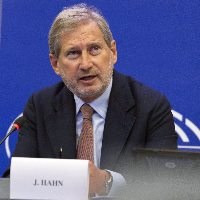(STRASBOURG) – The Commission proposed Tuesday an EU budget of EUR 167.8 billion for 2022, prioritising green and digital spending in a bid to boost Europe’s economic recovery, safeguard sustainability and create jobs.
The EU executive says the draft budget, boosted by ‘NextGenerationEU’ funding, ‘directs funds to where they can make the greatest difference, in line with the most crucial recovery needs of the EU Member States and partners around the world’.
The Commission’s draft budget offers “unprecedented levels of financial support to reinforce Europe´s recovery from the health and economic crises,” said the EU Budget Commissioner Johannes Hahn, adding that it would “help the people, companies and regions that have been most affected by the pandemic.”
The budget reflects the EU’s political priorities, which are relevant to ensure a sustainable recovery. To that end, the Commission is proposing to allocate (in commitments):
- 118.4 billion in grants from NextGenerationEU under the Recovery and Resilience Facility (RRF) to mitigate the economic and social impact of the coronavirus pandemic, and to make EU economies and societies more sustainable, resilient and better prepared for the challenges and opportunities of the green and digital transitions.
- 53.0 billion for the Common Agricultural Policy and 972 million for the European Maritime, Fisheries and Aquaculture Fund, for Europe’s farmers and fishers, but also to strengthen the resilience of the agri-food and fisheries sectors and to provide the necessary scope for crisis management. The European Agricultural Fund for Rural Development (EAFRD) could receive an extra 5.7 billion from NextGenerationEU.
- 36.5 billion for regional development and cohesion, reinforced by 10.8 billion from NextGenerationEU under REACT-EU to support crisis response and crisis repair.
- 14.8 billion to support our partners and interests in the world, of which 12.5 billion under the Neighbourhood, Development and International Cooperation Instrument Global Europe (NDICI Global Europe), and 1.6 billion for Humanitarian Aid (HUMA).
- 13.1 billion for research and innovation, of which 12.2 billion for Horizon Europe, the Union’s flagship research programme. It could receive an extra 1.8 billion from NextGenerationEU.
- 5.5 billion for European strategic investments, of which 1.2 billion for InvestEU for key priorities (research and innovation, twin green and digital transition, the health sector, and strategic technologies), 2.8 billion for the Connecting Europe Facility to improve cross-border infrastructure, and 1.2 billion for the Digital Europe Programme to shape the Union’s digital future. InvestEU could receive an extra 1.8 billion from NextGenerationEU.
- 4.7 billion for people, social cohesion, and values, of which 3.4 billion Erasmus+ to create education and mobility opportunities for people, 401 million to support artists and creators around Europe, and 250 million to promote justice, rights, and values;
- 2.1 billion for spending dedicated to space, mainly for the European Space Programme, which will bring together the Union’s action in this strategic field.
- 1.9 billion for environment and climate action, of which 708 million for the LIFE programme to support climate change mitigation and adaptation, and 1.2 billion for the Just Transition Fund to make sure that the green transition works for all. The Just Transition Fund could receive an extra 4.3 billion from NextGenerationEU.
- 1.9 billion for protecting our borders, of which 780 million for the Integrated Border Management Fund (IBMF), and 758 million for the European Border and Coast Guard Agency (Frontex).
- 1.9 billion to support candidate and potential candidate countries in meeting the requirements of the Union’s accession process, chiefly through the Instrument for Pre-Accession Assistance (IPA III).
- 1.3 billion for migration-related spending, of which 1.1 billion to support migrants and asylum-seekers in line with our values and priorities.
- 1.2 billion to address defence and common security challenges, of which 950 million to support capability development and research under the European Defence Fund (EDF), as well as 232 million for to support Military Mobility.
- 905 million to ensure the functioning of the Single Market, including 584 million for the Single Market Programme, and close to 200 million for work on anti-fraud, taxation, and customs.
- 789 million for EU4Health to ensure a comprehensive health response to people’s needs, as well as 95 million to the Union Civil Protection Mechanism (rescEU) to be able deploy operational assistance quickly in case of a crisis. RescEU could receive an extra 680 million from NextGenerationEU.
- 600 million for security, of which 227 million for the Internal Security Fund (ISF), which will combat terrorism, radicalisation, organised crime, and cybercrime.
The draft budget for 2022 is part of the Union’s long-term budget as adopted at the end of 2020, and seeks to turn its priorities into concrete annual deliverables. A significant part of the funds will therefore be dedicated to combatting climate change, in line with the target to spend 30% of the long-term budget and the NextGenerationEU recovery instrument on this policy priority.


